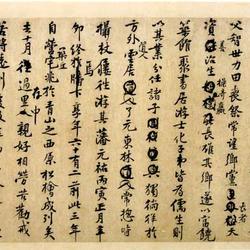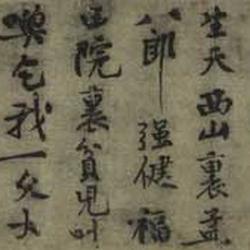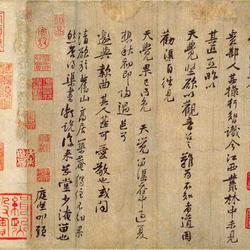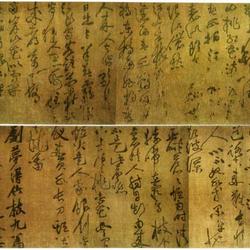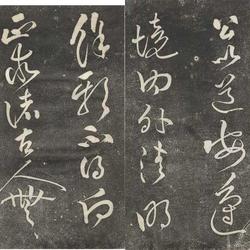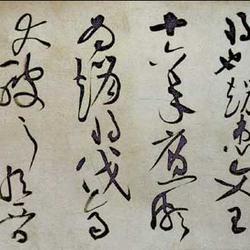"Zhu Shangzuo Cursive Scroll" was written in the third year of Yuanfu (1100), paper version, cursive script. Ninety-two lines, four hundred and seventy-seven words, 33X729.5 cm. Signature: "Book of the Old Man of the Valley." The word "Book" is stamped with the official seal of "Taoist of the Valley" Zhu Wen. The later paper has a title and postscript from Wu Kuan of the Ming Dynasty, and a title and postscript of the Qing and Liang Dynasties. On the front and back of the volume and across the water are the seals of "Neifu Shushu Seal", "Shaoxing" and "Yesheng" of the Song Dynasty, "Weisu Private Seal" of the Yuan Dynasty, seals of Li Yingzhen, Hua Xia and Zhou Lianggong of the Ming Dynasty, Sun Chengze and Wang Hongxu of the Qing Dynasty, and Zhang Boju of modern times. This post was first stored in the inner palace of Emperor Gaozong of the Southern Song Dynasty, and later returned to Jia Sidao. It was hidden in the offices of Li Yingzhen, Huaxia and Zhou Liang in the Ming Dynasty. It was stored in Sun Chengze's Yanshanzhai in the early Qing Dynasty, and later returned to Wang Hongxu. It was collected in the inner palace during the Qianlong period and left the palace in the late Qing Dynasty. In addition, it was acquired by Mr. Zhang Boju and later donated to the country. It is now in the Palace Museum in Beijing.
This volume is Huang Tingjian's "Quotations of Zen Master Wenyi" copied by Jinling in the Five Dynasties for his friend Li Rendao. It is one of his fine cursive scripts. This volume is the representative work of Gu Gu in his later years. It deeply reflects the legacy of Huai Su's cursive calligraphy. It is like a dragon fighting a tiger and leaping, yet round and transcendent. It is extremely vertical and horizontal, but the pen is not letting go. It takes the momentum to sideways and opens to the left and right. The dry and moist ink contrasts with each other. Bu Tian is full of fun, majestic and otherworldly, and seems to have a Zen atmosphere. Huang Tingjian's "Autobiography of the Valley" says: "I have studied cursive calligraphy for more than thirty years. I first took Zhou Yue as my teacher, so I kept up the vulgarity for twenty years. Later I learned about Su Caiweng and Zimei's calligraphy, and I got the ancient writing style. Later, he obtained ink ink by Zhang Changshi, Seng Huaisu, and Gao Xian, which gave him a glimpse into the wonderfulness of his writing skills." After "Quotations", Huang also wrote a large-character regular script self-recognized poem, with the knots tight inside and loose outside, and the pen length long. It is powerful, full of twists and turns, and full of momentum. It is a volume of calligraphy that contains two parts, contrasting with each other. It is particularly rare and is a masterpiece in his later years. Ming Dumu's "Yuyi Bian", Huaxia's "Zhenshangzhai Fu Annotation", Wenjia's "Qishantang Calligraphy and Painting Notes", Zhang Chou's "Qinghe Painting and Calligraphy Boat", "Qinghe Knowledge Table", Bian Yongyu's "Shigutang Calligraphy and Painting Collection", Qing Dynasty It was recorded in Sun Chengze's "Records of Gengzi's Spending the Summer" and the Qing Dynasty's "Shiqu Baoji·First Edition".
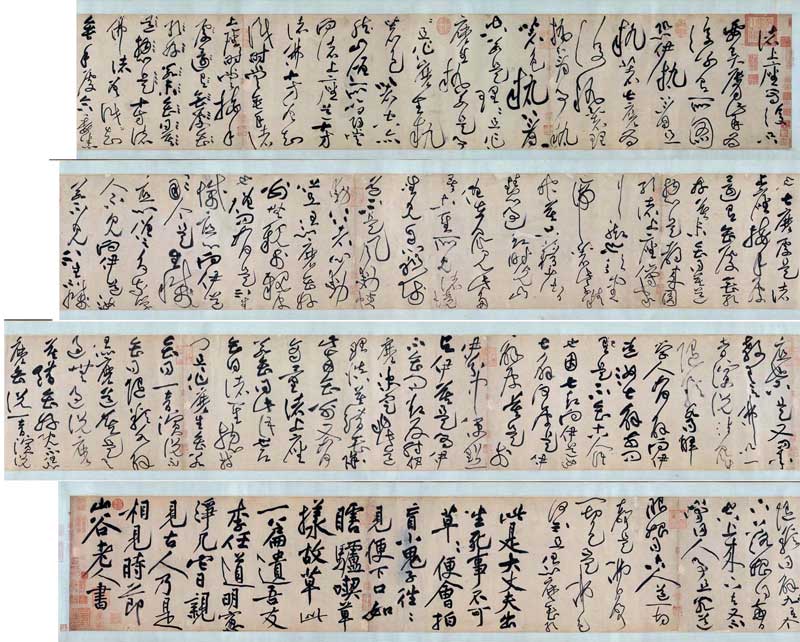
Interpretation: All you have to do is to fix your lips, to have some other ideas, and fear that you will be attached to something, and what should you be attached to? In order to return to attachment, you are attached to principles, things, colors, and emptiness. If it is principles, how can principles cause attachment? If this is the case, what should we do to cause attachment, color, and emptiness? Therefore, the mountain monk seeks the way to the superiors, the Buddhas and good teachers of the ten directions. Six characters), all the Buddhas and good teachers in the ten directions put their hands down to meet and understand each other. Where is the place where the superiors take over? When traveling close to home, you must also examine the spirit of some disciples. Don't just borrow a little wisdom and pass the time. The mountain monk has seen so much in the crowd. The ancient sages saw all the realms and only saw their own minds. The way of the ancestors is not moved by the wind. The flags are moving, the wind is moving, the flags are moving, and the heart is moving, but how can it be good? There is no other place to be close to relatives. The monk asked, what is the bottom of the heart that does not arise and die? Xiangyi said, that is the bottom of the bottom of birth and death, the monk said, If you don't see the disciples of Zhengnai, and ask Yi Dao, if you don't see it, it is not the basis of neither birth nor death. I also ask, there are words to teach, and the Buddha speaks the Dharma with one sound. All living beings have their own interpretations according to their categories. Learn how to understand, and ask Yi Dao. You have a very clear understanding. You don’t know the language of the ancients. Because of this, you have a very clear understanding. Where is the Yi Dao? Don't just point to her when she is divided. Don't you think she can't ask but reflect her? This is not the way to decide. Be careful not to miss the meeting. Apart from these two meetings, how can we discuss it? If you can understand this, As for speech, even if you can get the saints to hold the door, and how to make a meeting, if you can speak with one tone, you will not be able to interpret it according to the category, so if you don't have faults in the way, don't make mistakes in what you say, and it will be good. It’s not that you can speak a single tone of speech, you can understand it according to the category, there is a whereabouts, and you can get up and down in the air every day, and you don’t have to understand human affairs, and you can only get it by studying the Tao eye. The ancients said that all sounds are the sounds of the Buddha, and all colors are It is the color of Buddha, why not take it now?
This is a matter of life and death for a man, and should not be done lightly. Blind little devils often eat when they see them, like a blind donkey eating grass, so I drafted this article and left it to my friend Li Rendao. There are several clear windows. He meets the ancients in person every day. It is the season for meeting each other. The old man in the valley writes.

